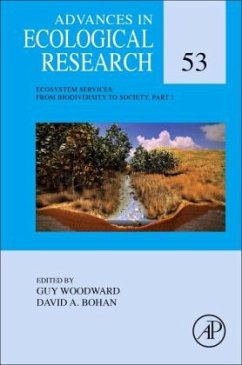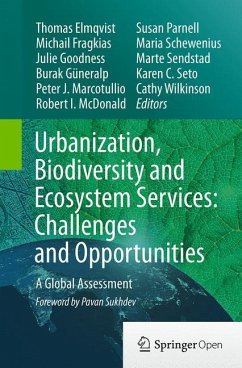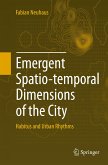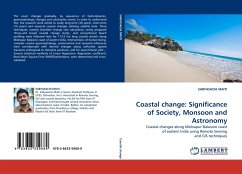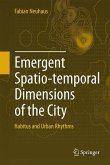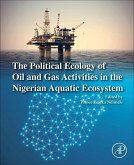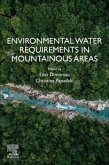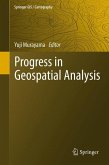Ecosystem Services: From Biodiversity to Society, Part 1
Herausgegeben:Woodward, Guy; Bohan, David
Ecosystem Services: From Biodiversity to Society, Part 1
Herausgegeben:Woodward, Guy; Bohan, David
- Gebundenes Buch
- Merkliste
- Auf die Merkliste
- Bewerten Bewerten
- Teilen
- Produkt teilen
- Produkterinnerung
- Produkterinnerung
Advances in Ecological Research is one of the most successful series in the highly competitive field of ecology. Each volume publishes topical and important reviews, interpreting ecology as widely as in the past, to include all material that contributes to our understanding of the field. Topics in this invaluable series include the physiology, populations, and communities of plants and animals, as well as landscape and ecosystem ecology.
Andere Kunden interessierten sich auch für
![Urbanization, Biodiversity and Ecosystem Services: Challenges and Opportunities Urbanization, Biodiversity and Ecosystem Services: Challenges and Opportunities]() Urbanization, Biodiversity and Ecosystem Services: Challenges and Opportunities38,99 €
Urbanization, Biodiversity and Ecosystem Services: Challenges and Opportunities38,99 €![Emergent Spatio-temporal Dimensions of the City Emergent Spatio-temporal Dimensions of the City]() Fabian NeuhausEmergent Spatio-temporal Dimensions of the City74,99 €
Fabian NeuhausEmergent Spatio-temporal Dimensions of the City74,99 €![Coastal change: Significance of Society, Monsoon and Astronomy Coastal change: Significance of Society, Monsoon and Astronomy]() SABYASACHI MAITICoastal change: Significance of Society, Monsoon and Astronomy38,99 €
SABYASACHI MAITICoastal change: Significance of Society, Monsoon and Astronomy38,99 €![Emergent Spatio-temporal Dimensions of the City Emergent Spatio-temporal Dimensions of the City]() Fabian NeuhausEmergent Spatio-temporal Dimensions of the City74,99 €
Fabian NeuhausEmergent Spatio-temporal Dimensions of the City74,99 €![The Political Ecology of Oil and Gas Activities in the Nigerian Aquatic Ecosystem The Political Ecology of Oil and Gas Activities in the Nigerian Aquatic Ecosystem]() The Political Ecology of Oil and Gas Activities in the Nigerian Aquatic Ecosystem69,99 €
The Political Ecology of Oil and Gas Activities in the Nigerian Aquatic Ecosystem69,99 €![Environmental Water Requirements in Mountainous Areas Environmental Water Requirements in Mountainous Areas]() Environmental Water Requirements in Mountainous Areas97,99 €
Environmental Water Requirements in Mountainous Areas97,99 €![Progress in Geospatial Analysis Progress in Geospatial Analysis]() Progress in Geospatial Analysis74,99 €
Progress in Geospatial Analysis74,99 €-
-
-
Advances in Ecological Research is one of the most successful series in the highly competitive field of ecology. Each volume publishes topical and important reviews, interpreting ecology as widely as in the past, to include all material that contributes to our understanding of the field. Topics in this invaluable series include the physiology, populations, and communities of plants and animals, as well as landscape and ecosystem ecology.
Produktdetails
- Produktdetails
- Advances in Ecological Research Volume 53
- Verlag: Academic Press / Elsevier Science & Technology
- Artikelnr. des Verlages: S0065-2504(15)X0003-1
- Englisch
- Abmessung: 20mm x 152mm x 229mm
- Gewicht: 679g
- ISBN-13: 9780128038857
- Artikelnr.: 43672493
- Advances in Ecological Research Volume 53
- Verlag: Academic Press / Elsevier Science & Technology
- Artikelnr. des Verlages: S0065-2504(15)X0003-1
- Englisch
- Abmessung: 20mm x 152mm x 229mm
- Gewicht: 679g
- ISBN-13: 9780128038857
- Artikelnr.: 43672493
Guy Woodward is Professor of Ecology in the Department of Life Sciences at Imperial College London and Series Editor for Advances in Ecological Research. He has authored over 100 peer-reviewed publications, including recent papers in Nature, Science and Nature Climate Change, with a strong emphasis on understanding and predicting how aquatic ecosystems and food webs respond to a wide range of biotic and abiotic stressors, including climate change, chemical pollution, habitat degradation and invasive species. Much of this work covers multiple scales in space and time and also a range of organisational levels - from genes to ecosystems. His research group and ongoing collaborations span the natural and social sciences, reflecting the need for multidisciplinary approaches for addressing the environmental challenges of the 21st Century.Dave Bohan is an agricultural ecologist with an interest in predator-prey regulation interactions. Dave uses a model system of a carabid beetle predator and two agriculturally important prey; slugs and weed seeds. He has shown that carabids find and consume slug prey, within fields, and that this leads to regulation of slug populations and interesting spatial 'waves' in slug and carabid density. The carabids also intercept weed seeds shed by weed plants before they enter the soil, and thus carabids can regulate the long-term store of seeds in the seedbank on national scales. What is interesting about this system is that it contains two important regulation ecosystem services delivered by one group of service providers, the carabids. This system therefore integrates, in miniature, many of the problems of interaction between services.
Dave has most recently begun to work with networks. He developed, with colleagues, a learning methodology to build networks from sample date. Thishas produced the largest, replicated network in agriculture. One of his particular interests is how behaviours and dynamics at the species level, as studied using the carabid-slug-weed system, build across species and their interactions to the dynamics of networks at the ecosystem level.
Dave has most recently begun to work with networks. He developed, with colleagues, a learning methodology to build networks from sample date. Thishas produced the largest, replicated network in agriculture. One of his particular interests is how behaviours and dynamics at the species level, as studied using the carabid-slug-weed system, build across species and their interactions to the dynamics of networks at the ecosystem level.
- 10 Years Later: Revisiting Priorities for Science and Society a Decade after the Millennium Ecosystem Assessment
- Linking Biodiversity, Ecosystem Functioning and Services, and Ecological Resilience: Towards an Integrative Framework for Improved Management
- Detrital Dynamics and Cascading Effects on Supporting Ecosystem Services
- Towards an Integration of Biodiversity-Ecosystem Functioning and Food-Web Theory to Evaluate Relationships Between Multiple Ecosystem Services
- Persistence of Plants and Pollinators in the face of Habitat Loss: Insights from Trait-based Metacommunity Models
- A Network-Based Method to Detect Patterns of Local Crop Biodiversity: Validation at the Species and Infra-Species Levels
- 10 Years Later: Revisiting Priorities for Science and Society a Decade after the Millennium Ecosystem Assessment
- Linking Biodiversity, Ecosystem Functioning and Services, and Ecological Resilience: Towards an Integrative Framework for Improved Management
- Detrital Dynamics and Cascading Effects on Supporting Ecosystem Services
- Towards an Integration of Biodiversity-Ecosystem Functioning and Food-Web Theory to Evaluate Relationships Between Multiple Ecosystem Services
- Persistence of Plants and Pollinators in the face of Habitat Loss: Insights from Trait-based Metacommunity Models
- A Network-Based Method to Detect Patterns of Local Crop Biodiversity: Validation at the Species and Infra-Species Levels
